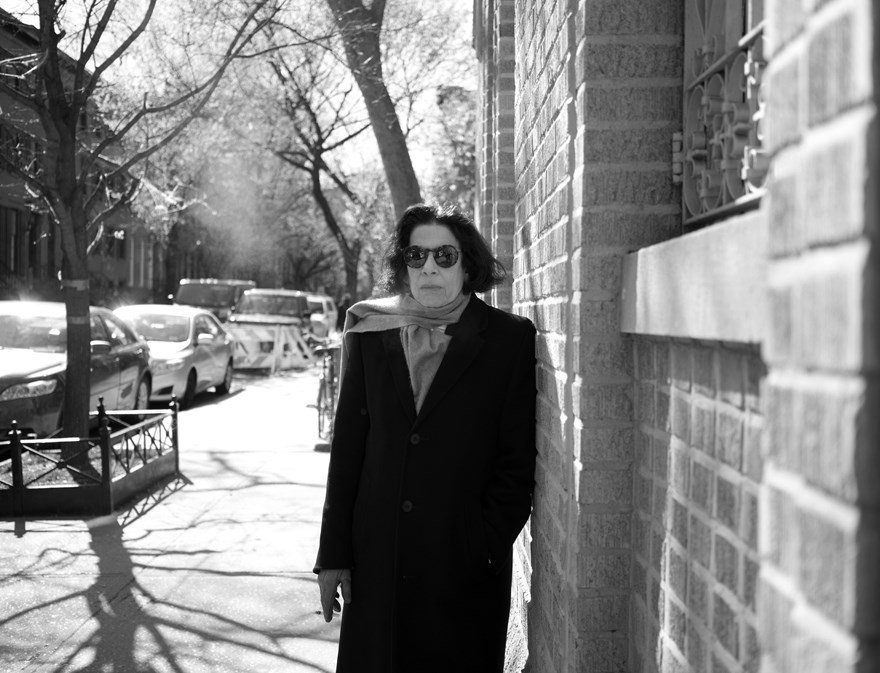Fran Lebowitz opens the Cap U Speaker Series at The BlueShore on Sept. 27 and 28 at 8 p.m. For more information and to reserve tickets visit capilanou.ca.
Conversationally, Fran Lebowitz is the roller skate at the top of the staircase. Just the smallest nudge and she whirls off to inflict more harm than could have possibly been expected.
After reaching Lebowitz by landline (she has no cellphone and does not “possess” the internet), I ask if her parents were great conversationalists.
“No.”
That “no” is so dead and frozen it might be on a meat hook. But then she laughs and begins.
“I did not grow up in an environment of witty repartee. I grew up in a very typical middle class – what middle class meant in the ’50s, by the way, which is not what people mean now. Now they mean what we used to think of as rich – and truthfully, children were not encouraged to talk that much,” she says.
In her 1981 book Social Studies, Lebowitz advises: “Do not elicit your child’s political opinions. He doesn’t know any more than you do.”
It’s an edict Lebowitz’s parents abided by.
“The most frequent thing I ever heard from my parents is: ‘You’re just a child. . . .’ So one thing that they never wanted to hear was what I thought of anything.”
Dinner was “one instruction after another” interspersed with tidbits about the state of her father’s upholstery shop and the price of food.
“It drove me out of my mind, even when I was a child,” she says. “Conversation the way that you are meaning I was really unaware of.”
She didn’t truly become aware of the possibilities of conversation until seeing author James Baldwin.
“I was riveted by him,” she says, recalling her discovery of the If Beale Street Could Talk author on television.
“That’s the kind of television there used to be,” she says. “If there was someone like James Baldwin now he would never be on television. ‘Too smart, sorry, you can’t come on.’”
But listening to Baldwin hold court on writing and systemic racism was captivating.
“I never heard anyone talk like that,” she says. “That was my first idea that there was such a thing as an intellectual.”
There’s been a renewed interest in public intellectuals and political lecturers recently, Lebowitz says.
“The internet causes people who are young to take note of you,” she says. “Also, there’s more interest in this kind of thing than there used to be. Part of this is because of Donald Trump.”
Like a compass needle pivoting to true north the conversation swings to the President of the United States.
“Inescapable,” she says of Trump as a conversation topic. “And I don’t mean just here. I was in Australia this year. You cannot be farther away from anywhere, after Australia is Saturn.”
But 90 per cent of the questions Lebowitz fields – whether she’s in Australia, Spain, or Canada – are about Trump. Of course, they’re not all questions, Lebowitz notes. Sometimes they’re accusations.
“It is not my fault,” she says. “I refuse to take the blame for Donald Trump. Whatever one person can do – who’s for instance not a Russian – to have kept him from winning, I did.”
The global interest, Lebowitz maintains, is understandable because the president is “globally horrifying.”
Lebowitz, who once suggested she act as de facto director of admissions for the City of New York, takes a certain pride that her city overwhelmingly supported Hillary Clinton.
“Even the Upper East Side,” she crows.
“I knew he was stupid, I’m from New York,” she says. “I don’t think people understand how stupid he is. This is like . . .”
Like a super-computer overwhelmed by a problem it was never programmed to solve, Lebowitz can’t quite finish the thought, trailing off into a soft gagging sound.
“It’s not that I didn’t know that there were a lot of stupid people in the United States,” she explains. “I just didn’t know there were this many and that they were that stupid.”
Watch his campaign rallies, Lebowitz advises, and you can understand the psychology of his supporters.
“It is obviously so pleasurable for them to be able to express their racism that they don’t care what happens to them in their own lives,” she says. “Their lives are not being bettered. The only people who profited from Trump’s presidency are extremely rich people, that’s who profited from his presidency and ‘profit’ is the word.”
Lebowitz’s appearance at Capilano University is set to be divided between a 30-minute interview and about an hour of audience questions.
“I love doing this,” she says. “Answering questions is something I love to do because no one ever let me do this when I was a child.”
Lebowitz once wrote: “Spilling your guts is just exactly as charming as it sounds.” But for 40 years Lebowitz has spilled her guts on the subject of politics as charmingly as possible in the hopes people will finally and truly listen.
“No one ever listened to me. No one ever listens to me now, by which I mean they listen to me – in the sense that they’re interested or amused by me – but they don’t do what I say.”



